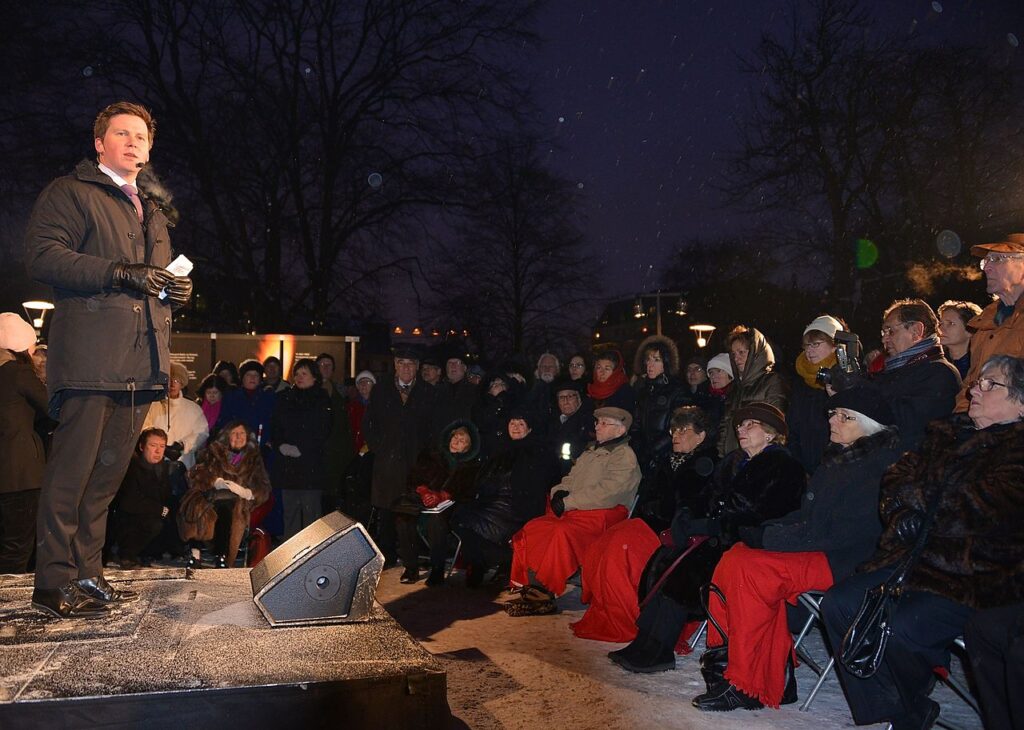January 27, 2006
The first U.N.-recognized International Holocaust Remembrance Day is held on the 61st anniversary of the liberation of Auschwitz. The goal of the commemoration is to educate the nations of the world and thus prevent genocides.
The U.N. General Assembly unanimously passed a resolution Nov. 1, 2005, to establish a day to commemorate the victims of the Holocaust. The resolution, introduced by Israel and co-sponsored by 104 other countries, designates Jan. 27 as the date each year. The resolution rejects Holocaust denial and encourages countries to develop educational programs about the horrors of genocide. The measure also condemns intolerance, harassment, violence or incitement based on religion or ethnicity.
The president of the General Assembly, Jan Eliasson, says the commemoration should be “a unifying historic warning around which we must rally, not only to recall the grievous crimes committed in human history, but also to reaffirm our unfaltering resolve to prevent the recurrence of such crimes.”
Israel’s ambassador to the United Nations, Dan Gillerman, says the Holocaust “brought us face to face with the full extent of man’s capacity for inhumanity to his fellow man,” and International Holocaust Remembrance Day should serve as an impetus for the United Nations to develop programs that on human rights and genocide.
Responding to the resolution’s call for an outreach effort on the Holocaust, the United Nations develops educational materials and programs with exhibits, panel discussions, videos and training seminars and gathers survivor testimony.









